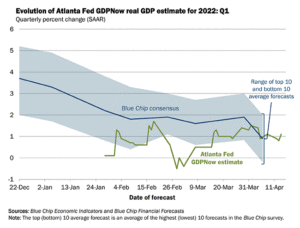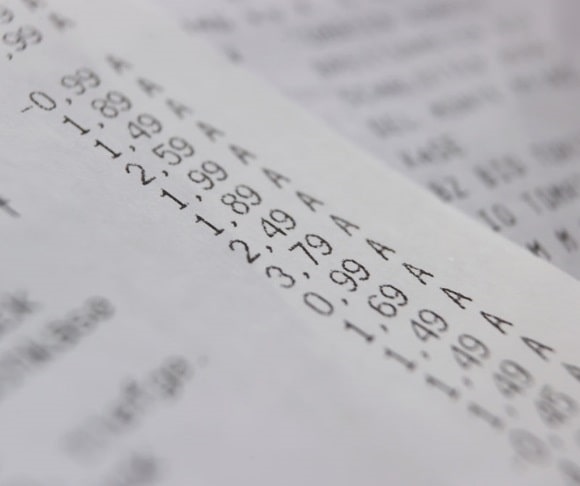At this point, is a recession almost certain? Economies worldwide are doing their best to stave off the inevitable decay of their post-pandemic inflationary environments. Central banks are engaged in a juggling act of inflation-busting, supporting economic growth, and quantitative tightening. However, after years of overdependence on fiscal and monetary stimulus and relief, taking off the training wheels could result in the bicycle falling over and scraping knees. It is comparable to the famous Jimmy Durante tune: “Did you ever get the feeling that you wanted to go? But still had the feeling that you wanted to stay? Was it right? Was it wrong? Still, you know you wouldn’t be very long.”
Prepare for a Soft Landing?
 The Federal Reserve plans to be more aggressive over the next couple of months to contain 8.5% inflation by raising interest rates and trimming the more than $9 trillion balance sheet by $95 billion a month. But Wall Street is becoming increasingly skeptical that the central bank can accomplish a recovery while undergoing these tightening efforts.
The Federal Reserve plans to be more aggressive over the next couple of months to contain 8.5% inflation by raising interest rates and trimming the more than $9 trillion balance sheet by $95 billion a month. But Wall Street is becoming increasingly skeptical that the central bank can accomplish a recovery while undergoing these tightening efforts.
“We no longer see the Fed achieving a soft landing instead, we anticipate that a more aggressive tightening of monetary policy will push the economy into a recession,” said Deutsche Bank in a recent research note.
Morgan Stanley says that it is not a guarantee that the Eccles Building can engineer this soft landing “by taming inflation without stunting economic growth.” The financial institution averred that there are reasons to be cautious, citing two main factors: high borrowing costs and fading consumption.
Treasury Secretary Janet Yellen did not exactly elicit confidence among market observers when she purported that “it’s not an impossible combination” to bring inflation down while sustaining a strong labor market. Indeed, anything Yellen utters should be questioned since she insisted for nearly all of 2021 that either inflation would not happen or sky-high consumer and producer prices would be transitory.
Overall, many Wall Street titans have been steadily increasing their recession odds, consumers are gradually scaling back their purchases, inflation expectations remain elevated, and business sentiment has diminished. While a recession may not pop up, stagflation – a blend of high inflation and stagnating economic expansion – is the more likely scenario. The Atlanta Fed Bank’s GDPNow estimate shows growth in the first quarter could come in at 1.1%.
 Every Yuan Is Worried in China
Every Yuan Is Worried in China
Following multiple lockdowns throughout major urban centers and economic hubs, China is worried about the world’s second-largest economy slowing down. Beijing anticipates that expansion will be 5.5% in 2022, but market analysts have lowered their expectations to 5% and below. The Chinese leadership is trying to ensure it can hit that target through various easing methods.
The People’s Bank of China (PBoC) cut the reserve requirement ratio (RRR) for most banks by 25 basis points and 50 basis points for smaller institutions for the first time since December. This is the lowest the RRR has been since 2007. Beijing will inject another $83 billion of long-term liquidity into the economy by cutting the ratio.
Economists had widely anticipated officials would employ this tactic. However, what the Chinese Communist Party and the PBoC will do next remains unclear. It might depend on whether COVID-19 infections start falling. Whatever the case, the lockdowns and public health restrictions have weighed on growth prospects so far this year, and the growing consternation could trigger even more fiscal and monetary stimulus to cushion the blows.
Putin’s Recession in Europe?
If President Joe Biden and his administration call 40-year high inflation in the US “Putin’s price hike,” will European leaders call the region’s possible economic downturn “Putin’s recession”? Most likely.

(Photo by Karl-Josef Hildenbrand/picture alliance via Getty Images)
It has become almost expected that the eurozone economy will slip into a recession, mainly if Russia turns off the taps and the European Union accelerates its ban on imports from Moscow, initiating an intensified energy crisis across the trade bloc. Moreover, inflation is soaring among many of the advanced economies – 7.5% in the eurozone and 6.1% in Germany – and central banks are increasingly falling behind the curve. The European Central Bank (ECB) has committed to pulling the trigger on rate hikes and scaling back its balance sheet, but many are pessimistic that this will achieve much.
“But the ECB doesn’t have the option to wait until the last quarter to hike rates; it must raise the interest rates by end of summer, the latest, even though inflation is caused by supply side problems that can’t be effectively addressed with restricting demand,” said Ipek Ozkardeskaya, a Swissquote Bank market analyst, in a research note. “If the ECB doesn’t act, the tighter monetary policy from other major central banks will send the value of the euro crashing, which would add an additional pressure on inflation.”
Overall, industry observers are warning that elevated power prices could linger much longer than expected in Europe, although some short-term relief could enter the picture soon amid improving weather conditions and greater US LNG imports, says Rystad Energy analyst Fabian Rønningen.
In the end, with the broad array of negative economic factors ubiquitous throughout the continent, the risk of a sharp recession in Europe is much greater than in the United States, Geraldine Sundstrom, portfolio manager at PIMCO, told CNBC on Apr. 15.
“Europe is also facing a very important supply shock and inflationary shock, and if anything, the ECB seems to be more willing to normalize policy despite the fact that the risk of a recession in Europe is way bigger than in the US,” she stated.




